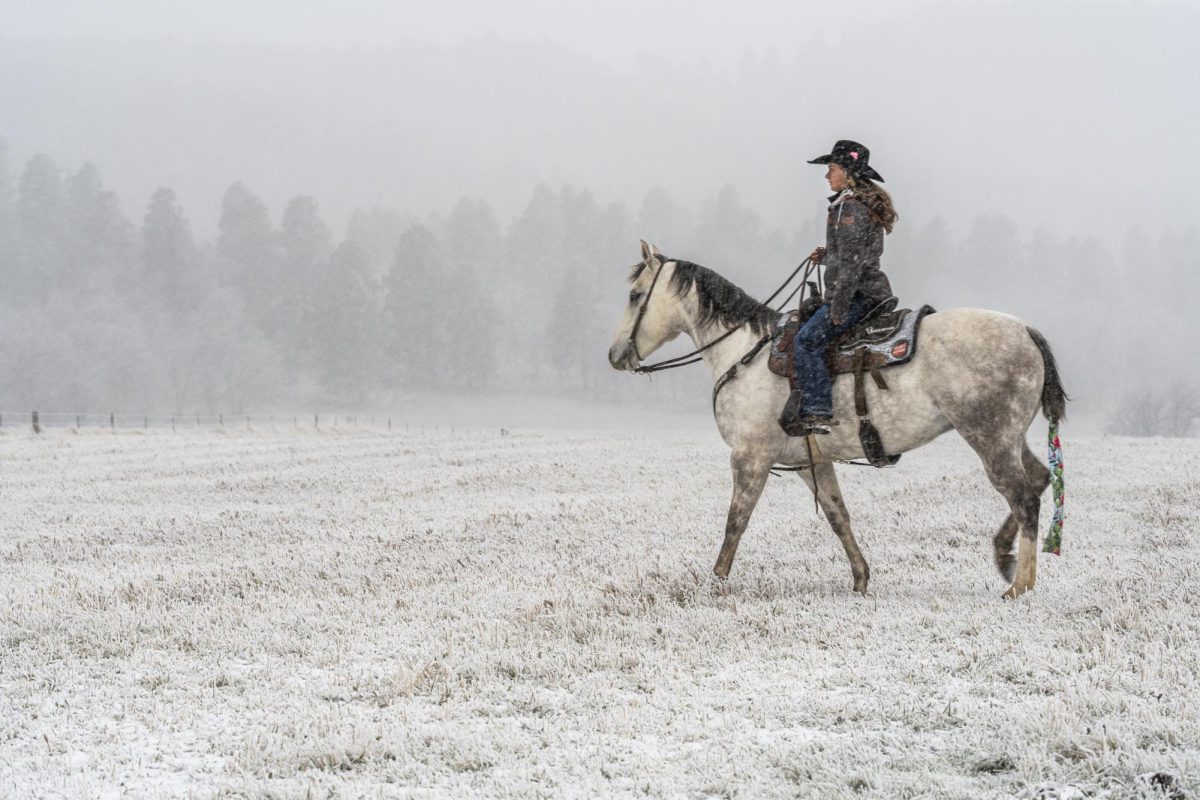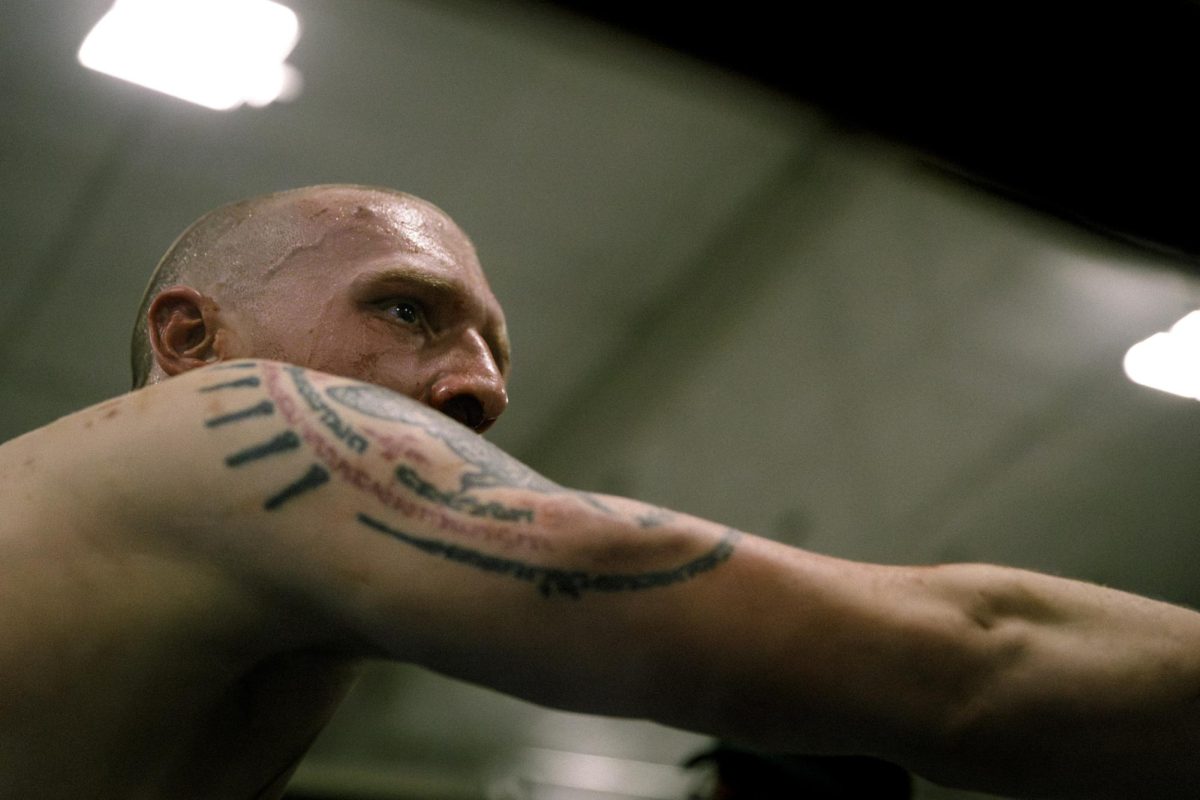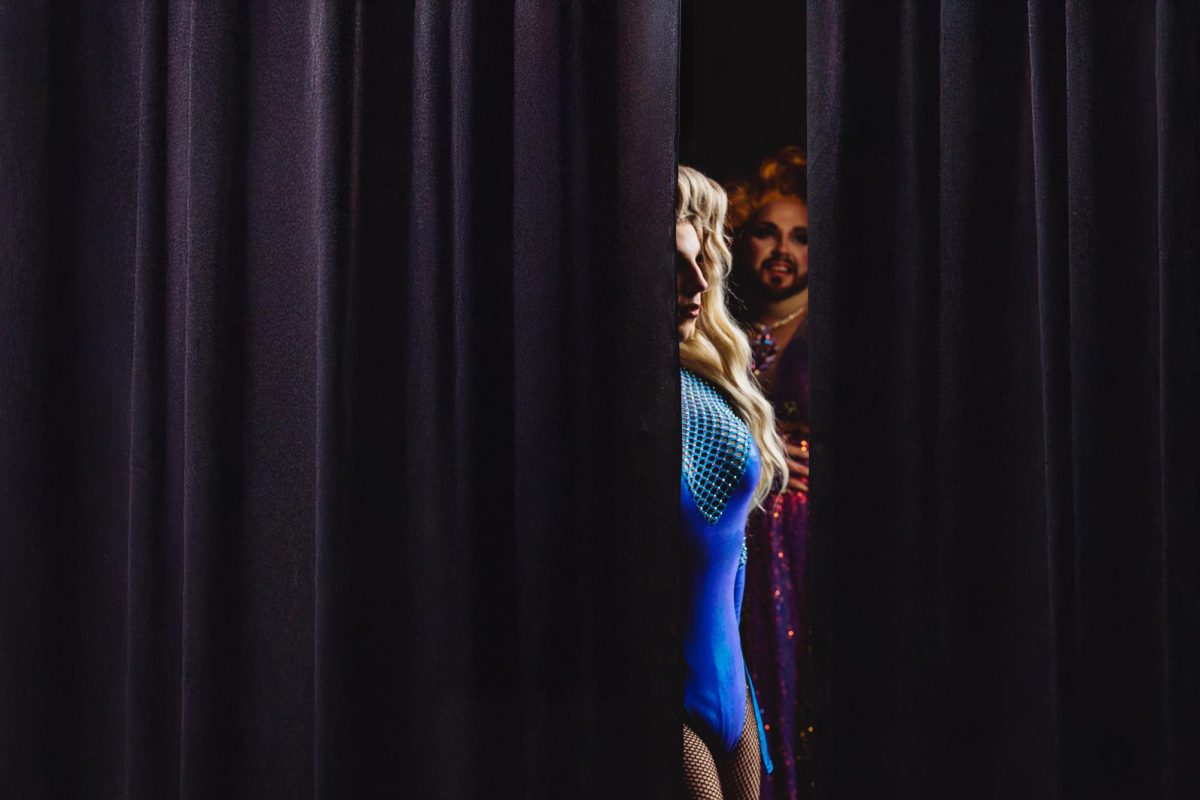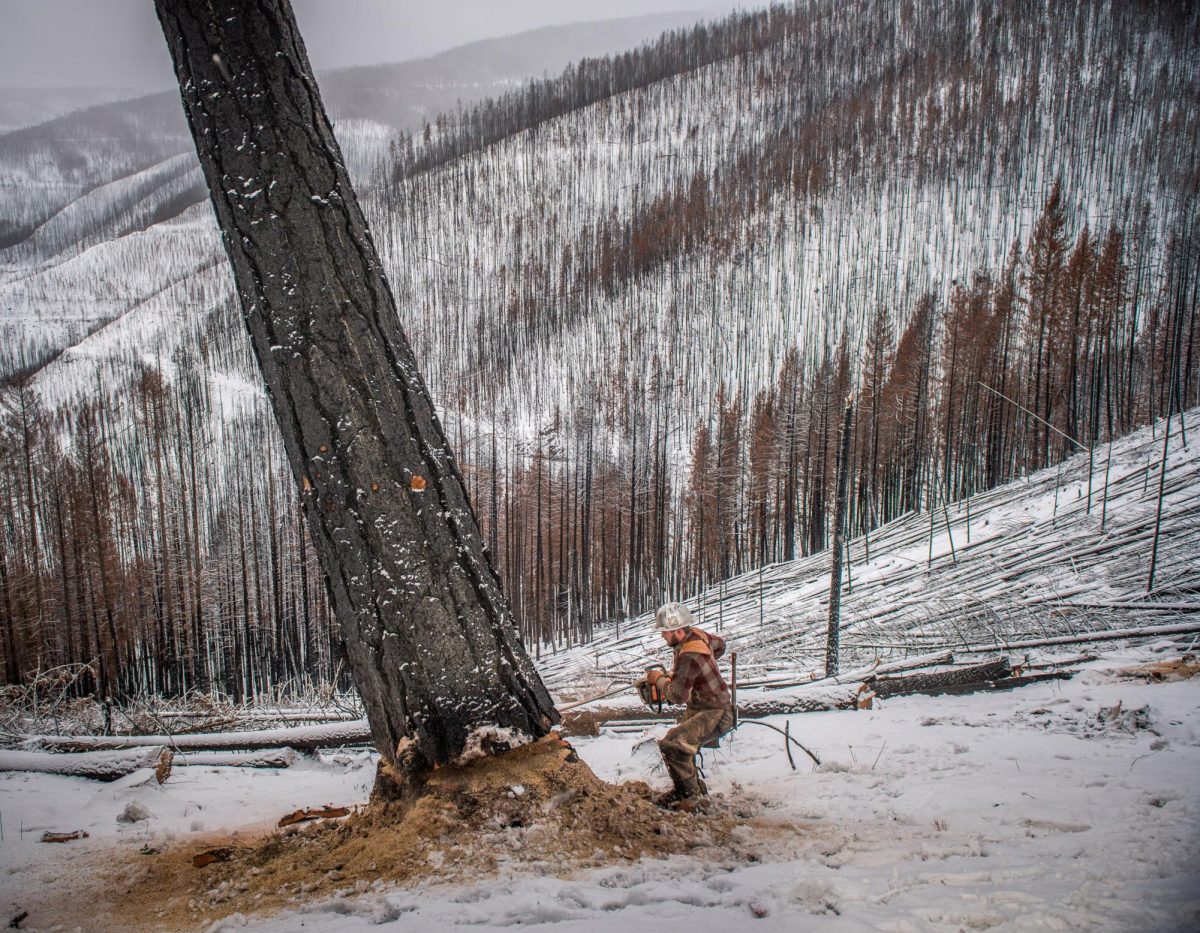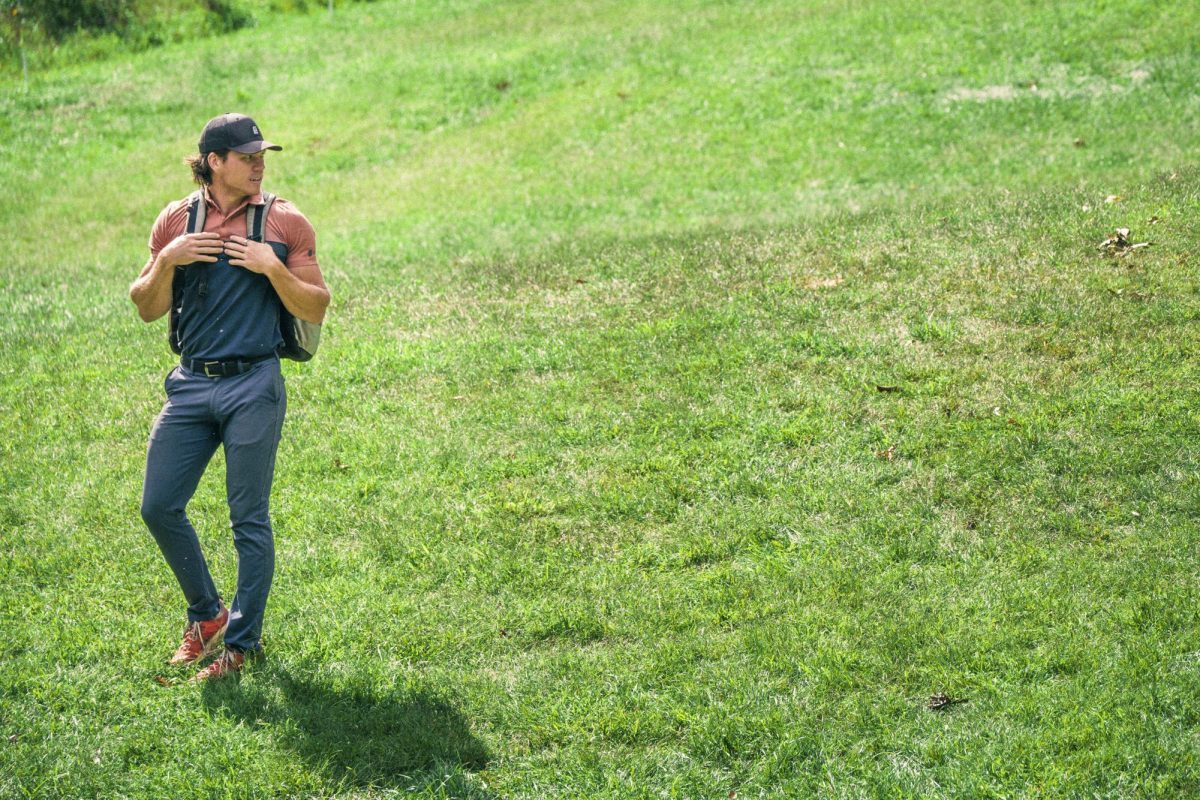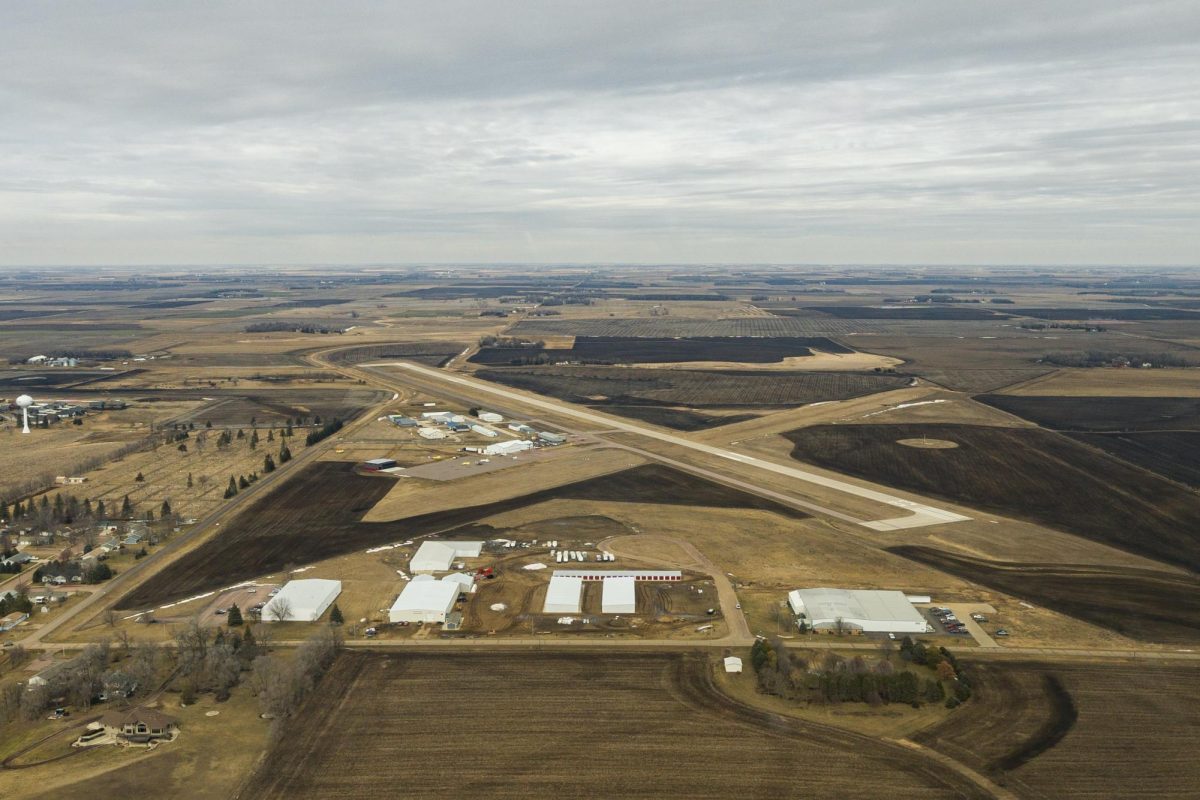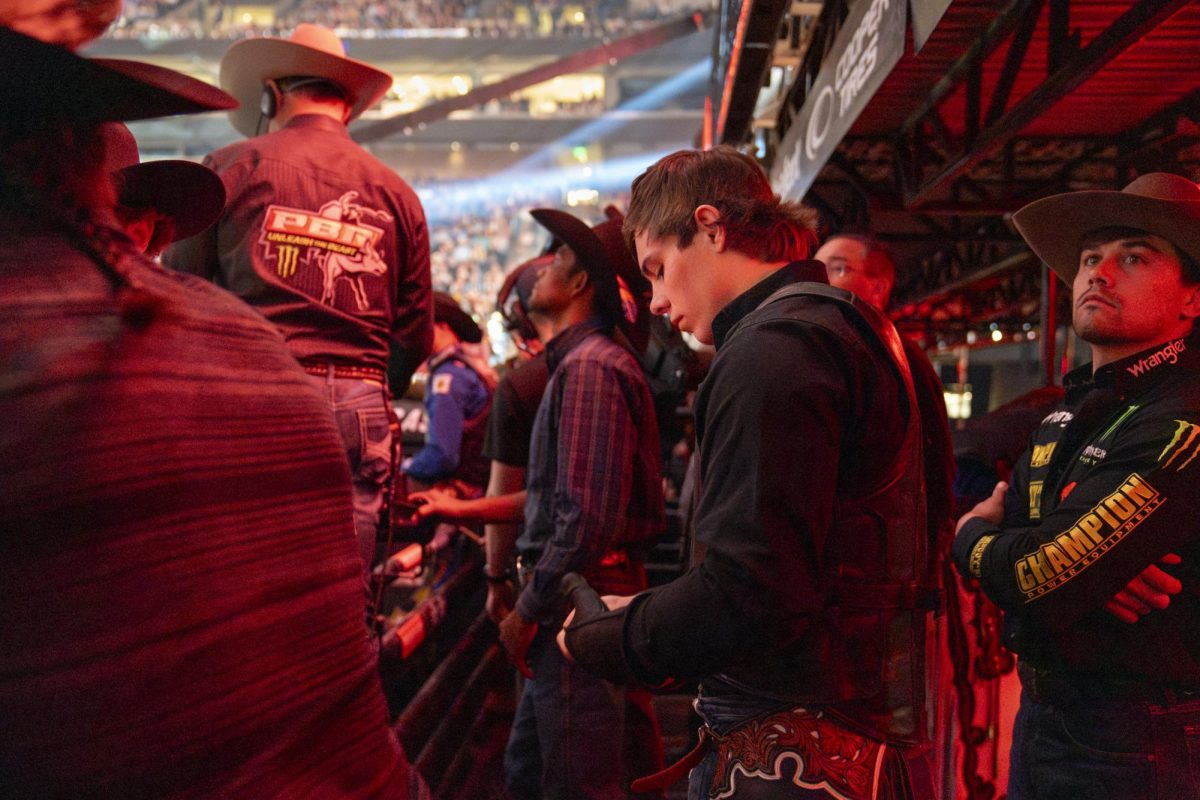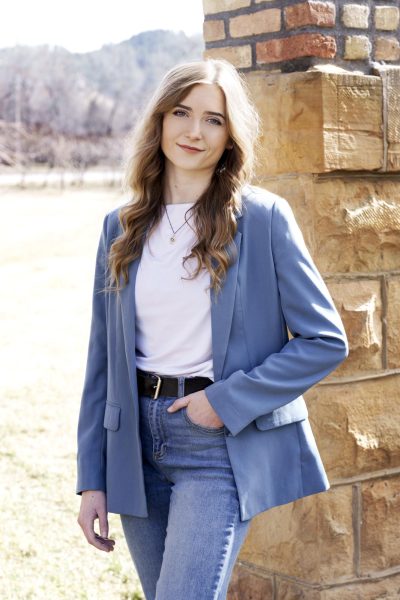The dirt-filled arena air has a thickness due to horses kicking up dust from their powerful legs. The dust is met with a scent that consists of livestock, leather and denim. As people enter the rodeo grounds, the sound of cheering and talking creates a blurred, unison sound that is mixed with loud country music. Lights from above create beams that stream through the space while the jumbotron showcases riders, illuminating the ground with dancing colors.
These distractions do not phase professional breakaway roper Rickie Fanning. Instead, her mind is filled with rushing thoughts of what she is about to do. Visioning the decisions about to come and rehearsing her preparation for roping the calf dominates her senses and obscure her surroundings.
As Fanning waits in the chute, she sits in anticipation on her horse, pacing her breath. “Just breathe,” she says to herself. She understands the task ahead of her but just needs to wait for her moment. Her rushing thoughts are abruptly disrupted by the clank of the spring-loaded door. Her fixated silence is broken as she reacts to this cue that signals the calf is now free and running freely in the arena.
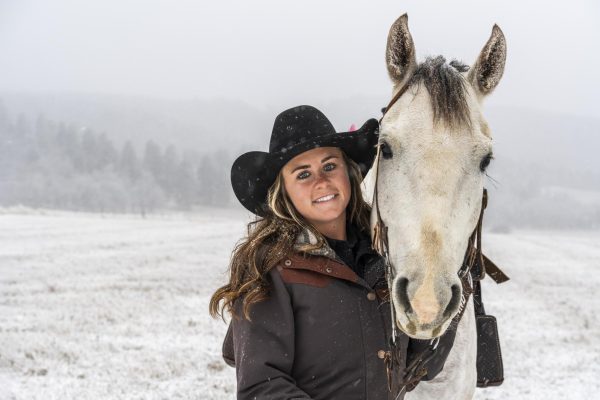
To make a qualifying ride she first needs to let the calf break the barrier which allows the animal to have enough of a head start. If she starts too soon, a 10-second penalty will be implemented. Fanning’s patience controls any impulse to immediately follow the calf.
Once the barrier is broken, Fanning swiftly follows on her horse. Every thought is lost, and muscle memory takes over. She twirls her lasso over her cowgirl hat.
She has just one shot to utilize her years of practice and experience to lasso the calf in a competitive time. To have a clean run she must bell collar the calf, only roping the neck of the animal – roping any other part of the animal is an automatic disqualification.
Time is of the essence. Just a tenth of a second leads to a victory or cause her ranking to fall. The swinging motion of her lasso is thrown to the calf. Within the blink of an eye, the calf now has a rope tied around his furry neck. The calf attempts to keep running, creating a pulling force against the opposing tug from Fanning and her horse, leading to a snap. This moment creates a standstill in time.
This is not Fanning’s first rodeo, nor her last. Rather, it is another day of her fulfilling a true passion that she has fashioned into a career—professional breakaway roping. The sport is unique – it was only introduced to the Women’s Professional Rodeo Association (WPRA) in 2019. Its addition provided more opportunities for female rodeo athletes to compete as the only other form of professional rodeo open to women was barrel racing. 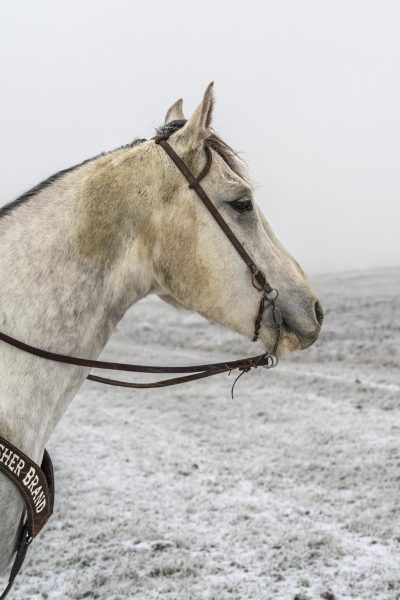
Fanning capitalized on the opportunity and has earned herself a spot in the WPRA, including finishing the 2023 season ranked no. 13 in the world, and securing her a place in the Women’s National Finals Rodeo (WNFR) for a second time.
To rise to these ranks, however, Fanning’s entire life has centered on rodeo. Growing up in the Spearfish, South Dakota, area offered opportunities to enter local rodeos. Another leading factor was the support from her family, especially her father, as rodeoing was always a part of his life. With this, he bequeathed his skills to Fanning and her siblings.
“[My dad] was raised on a ranch in Bowman, North Dakota,” Fanning said. “He was into roping and he’s the one who brought us into it.”
Due to her father’s lifestyle, Fanning learned how to ride horses around the same time she learned to walk.
“When I was younger… two, three years old, my dad put us on a horse and we would ride bareback and we would have a ‘buck and ride’ thing that we would ride on,” Fanning said.
One of Fanning’s fondest memories is from the period in which she first learned how to ride.
“We had this old horse that all of us kids, my sister started on when she was two, I did and then my brother, and he was a big horse,” Fanning said. “Our saddle blankets would only go so far down – well, so would our legs. So, he would always try to roll with you when you were on him. You would be trying to learn how to ride him, and he would try to lay down and roll.
Being around horses and riding them developed in Fanning a notion that rodeo is more than just a sport – it’s a passion.
“A big thing was my dad,” Fanning said “He got us all started in it…and then it just kind of grew into a passion. It was never forced on us if we wanted to rodeo but was an opportunity we had in our hands if we really wanted to do it. My dad was going to help us, and my mom was a huge asset too.”
In addition to her father training her, Fanning also utilized the expertise of others in her quest to perfect her techniques in breakaway roping.
“[I learned techniques from] Jerry Golliher and Carole Hollers, they have clinics,” Fanning said “And we would go there, and they do a lot of the basic stuff, and they also do a lot of the advanced stuff. I mean, shoot, we probably went to five, six, seven of those things growing up. That was a big thing in helping you in roping.”
Fanning even joked about how this clinic was a way of validating what she learned from her father.
“My dad knew what he was talking about,” Fanning said. “But then also when you have us, it is sometimes good to hear it from someone else too so you can tell when he was right.”
Once she established basic skills in roping and riding, her family entered her and her sister into local rodeos.
“It was a lot of going to Little Britches Rodeos in Rapid or even like going into the finals in Boulder, Colorado – we went there a lot,” Fanning said. “Those are the big memories when we were younger.”
Throughout middle school and high school, Fanning continued to practice and spent countless hours dedicated to the sport. Mornings and evenings encompassed trial and error, patience and developing muscle memory.
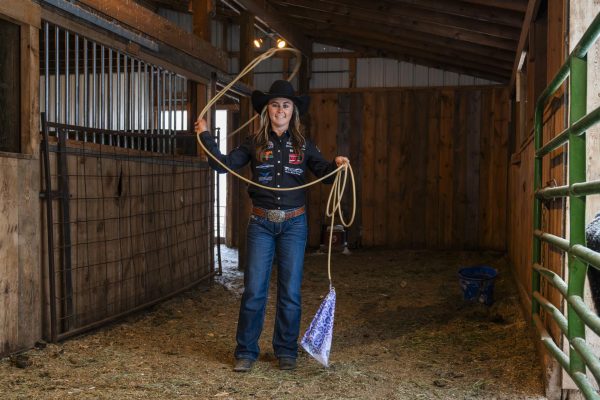 “There were a lot of hours…I don’t even know [how much],” Fanning said “There would be times in high school when we would do two-a-days. We would get up at 5:30 in the morning and rope until 7:30 and then go to school and then come back after and practice and stuff and we would rope again that night.”
“There were a lot of hours…I don’t even know [how much],” Fanning said “There would be times in high school when we would do two-a-days. We would get up at 5:30 in the morning and rope until 7:30 and then go to school and then come back after and practice and stuff and we would rope again that night.”
Growing up, Fanning made a mark in the amateur levels of breakaway roping, as competing at the professional level was not an option at that time in her life.
“Before we just did amateur rodeos,” Fanning said. “There are a lot of amateur level rodeos, Texas where we go in the winter and then if not [those places] you just hit the big jackpot. Opening rodeos, amateurs and jackpots are what you hit [then].”
After high school, she continued to compete in rodeo in college where she met her husband, Rhett Fanning, who also now competes professionally in rodeo. While both have different types of events they compete in, it does not stop them from meeting each other.
“We both ended up going to Gillette, Wyoming, to rodeo and that is where I met him, and we started dating when we were sophomores and then got married,” Fanning said.
Since being married to her husband, they now enter rodeos and travel together.
“[For his sport], he will team rope but the main thing he does is ride broncs, he likes to ride bucking horses,” Fanning said. “We get to rodeo together now, and we get to enter together because we are married. It’s fun and he loves it, too. His passion is doing it as well.”
Fanning continued to make relationships throughout the rodeo community, creating connections that aided her in her climb up the professional rankings. Who you are as a person is a huge component that contributes to success in professional breakaway riding. One’s character is important in this type of business.
“Our performance speaks a lot – I mean if you are good, people are going to recognize you, but that only goes so far,” Fanning said “A lot of people forget the aspect of outside of the arena, like who you are as a person is a way to get known. They go hand-in-hand. Yeah, your competition, how you rope and your level of horsemanship, those things go into a category, but also how you treat people and who you are as a person outside of the arena goes into another category.”
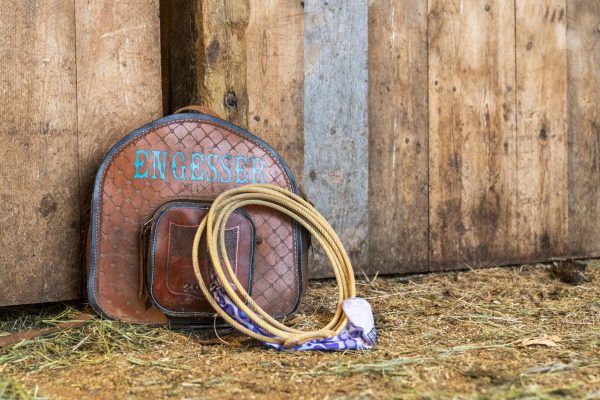 Her reputation for having a genuine personality is acclaimed by the rodeo community.
Her reputation for having a genuine personality is acclaimed by the rodeo community.
“There are a lot of people about who can say, ‘Oh she is really good at roping,’ but you can also say, ‘but she is not very friendly,’” Fanning said. “So, if you are a good person, and you rope good, you are going to be known by a lot of people. Whether it is now, or whether it is in five years.”
Not only has Fanning formed relationships with people, but so too with her horses. She understands that these animals are important components of the sport. This encompasses training, respecting and caring for each of her horses.
“We have had horses to live up to 30-years-old and had some we competed on until they were 27-years-old,” Fanning said. “A lot of it comes down to taking care of them and what you can get out of them.”
Fanning has also utilized horses that others would ignore making him a unique teammate. This is seen with the horse that she has now that would have been overlooked by other ropers.
“The horse I have now, I bought as a practice horse,” Fanning said. “He is blind in one eye, and he was 17-years-old when I bought him. I had another good [horse] to practice on and I just wanted to compete on her, and I needed a practice horse so I could practice for myself. Within a month, my good horse got hurt, she bowed a tendon on her front leg. When I went on [my practice horse], I realized, ‘Wow, he’s kind of the next big thing I needed.’”
Having a bond with her horses, along with her years of dedication, has led to Fanning earning the ranking she holds and qualifying for the WNFR.
“I mean it is such an amazing opportunity to make it two years in a row, [as it] is such a cutthroat event too, not in a bad way, but I mean there are so many good ropers, and so many good horses and so many good rodeos,” Fanning said. “The big thing is if you can capitalize on the right one, that helps a lot too to get you to where you need to be.”
With all her success and titles, Fanning ultimately believes that when it is your time to make it, it will happen.
“When it is God’s timing, I guess it is your timing,” Fanning said. “And that is a lot on what we go off of base ourselves off on. If it is your time—it is your time, and this year it was a long tough season, but in the end, it was where I wanted to be.”

